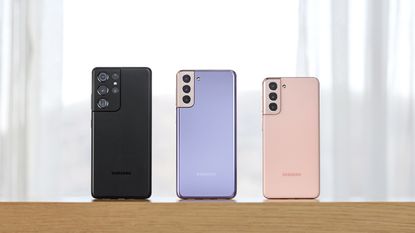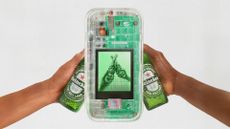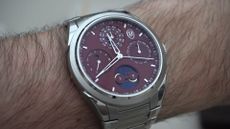We're expecting one of 2022's best phones, the Samsung Galaxy S22, to launch in February. That means we're at the point where leaks turn from a trickle to a torrent. The Samsung Galaxy S22 Ultra has been the subject of multiple reveals now, and the latest one - via Sammobile – shows a very significant design change. Unlike the Samsung Galaxy S21, there's no camera bump.
While Samsung has done its best to make the bump look good – it deliberately made it stand out in the Samsung Galaxy S21, as you can see in the picture above – it's still an inelegant solution to the smartphone camera conundrum. I'm glad to see the back of it, no pun intended.
Is it time to say bye to the bump?
It's not just the best Samsung phones. Apple's iPhone 13 has the bump too, and on the iPhone 13 Pro Max it's massive. But if the rumours are true, at least some iPhone 14 models are going to have a significantly smaller bump. I'd rather it wasn't there at all, but smaller is still better.
The bump is there because the laws of the universe don't care about how thin your phone is: there's a point where you can't make a camera's lenses and focal length any thinner, and if you see a bump that means the body of the phone has gone past it. The bump, then, is a bodge: a grudging compromise between form and function that makes your phone sit oddly on flat surfaces and makes you dread dropping it.
One of the reasons Samsung has said bye to the bump is its use of a periscope lens, which uses mirrors to deliver optical zoom without requiring massive lenses. Apple is expected to go periscope too: the tech didn't make it into the iPhone 13, and I hope the reports that it'll miss the iPhone 14 are wrong: as Sir Mix-A-Lot almost said, I dislike big bumps and I cannot lie.



